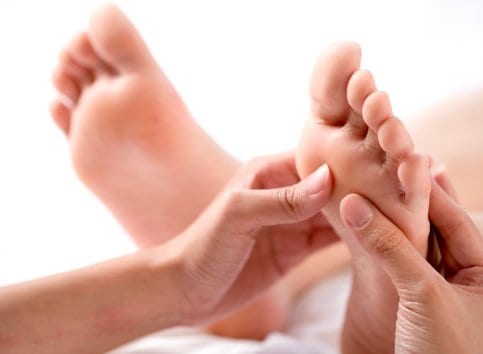Information on treating neuropathy. Diabetics often have to face not only treating their diabetes and keeping their blood glucose level in desirable range but they also must deal with various side effects of the disease as well. One such side effect which many diabetics experience during the course of their life is neuropathy. Neuropathy is nerve damage and comes in two different forms, peripheral neuropathy and autonomic neuropathy. For those individuals who suffer from neuropathy there are a few different ways to treat the nerve damage and the treatment methods may vary a little bit depending on the exact type of neuropathy.
Treating Peripheral Neuropathy
Peripheral neuropathy is nerve damage which usually affects the hands and feet. Individuals who suffer from peripheral neuropathy usually experience tingling in their hands and feet, numbness, pain, changes in temperature of the hands and feet, unsteadiness, muscle aches and perhaps even open sores which heal at a slow pace. In order to best treat cases of peripheral neuropathy, the best way to do so is to treat the individual conditions caused by the nerve damage.
For treating the problems associated with the feet, the individual should have frequent foot exams performed by their doctor. The medical health professional should exam the entire foot and especially focus on any specific problems such as injuries or blisters on the feet. Your doctor will most likely apply treatment methods to fix specific problems with your feet at that visit such as clean and bandage any wounds, exam them thoroughly and prescribe medications when necessary.
In general, the person suffering from the peripheral neuropathy will have to protect their feet in order to prevent further injuries from occurring. An additional treatment method for this type of neuropathy includes maintaining your blood glucose level so that it remains within target range. For those who have pain as a result of the nerve damage, pain medications may be prescribed by the doctor. If pain medications are not desirable to an individual who suffers from diabetic neuropathy, there are always various creams, ointments, an A TENS unit to block pain signals, relaxation methods, acupuncture and photo energy therapy.
Treating Autonomic Neuropathy
If one suffers from the other type of nerve damage known as autonomic neuropathy, they will often have symptoms which affect the body systems. These individuals may experience conditions relating to their digestive system, urinary tract, heart and blood vessels, sweat glands, eyes and sex organs. Various symptoms may include diarrhea, indigestion, constipation, bloating, nausea, unpredictable blood glucose levels, bladder control problems, sex-related issues, dizziness, fainting, sweating frequently and failure of eyes to adjust properly to darkness and/or light.
In order to get the proper treatment for your symptoms related to autonomic neuropathy, it is important to let your doctor know exactly what symptoms you are experiencing, how often they occur and the intensity of such. As with the peripheral neuropathy, the doctor will often treat autonomic neuropathy by offering treatment on a symptom-by-symptom basis. For example, if one experiences bloating or nausea after eating then perhaps a change in one’s diet is necessary. If the patient experiences diarrhea or bladder control issues, the doctor may want to prescribe certain medications to treat these bowel and bladder problems. In the end, it is your medical health professional who will offer suggestions to treating the various symptoms associated with your degree of nerve damage.
How to Receive the Best Treatment for Neuropathy
No matter whether you are experiencing peripheral neuropathy or autonomic neuropathy, there are a few things which you can do in order to receive the best treatment. First, make note of all symptoms which you are experiencing outlining what they consist of, how often they occur and the intensity thereof. Make sure you tell your doctor everything possible in order to receive the best treatment. Second, after consulting your doctor, determine which treatment methods are best for you and you find will be able to be completed by you in an efficient manner. Lastly, always try to keep your blood glucose level within target range as this will help to keep symptoms away.
